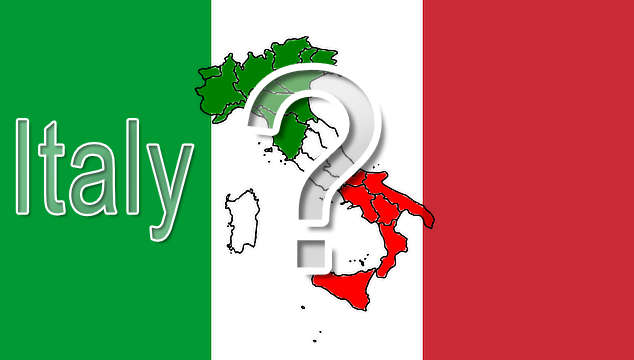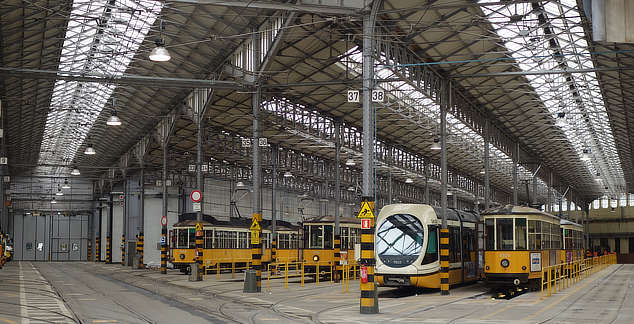Now that Italy has a brand new technocrat government led by one Mario Monti, what will happen next? This is something everybody in Italy is wondering. Reports are appearing in Italy’s newspapers predicting what Monti will do to resolve Italy’s problems. Some of the predictions are based on hits from Mario Monti himself.
The key word is “reform”, something which ex-prime minister Silvio Berlusconi loved to promise Italians but never actually got round to delivering. As well not reforming and a few other little problems, it was Berlusconi’s government’s continual dithering which led to their removal as Italy’s ruling party. Italy’s new Prime Minister Mario Monti is planning to carry out reforms which have been on the cards for a long time in Italy.
Here’s what Monti reportedly wants to do:
Pensions
To save money and to prevent the collapse of Italy’s pensions’ system, Mario Monti would like to up the age at which Italians can retire.

In 2010, according to OECD data, Italy was the second oldest country in the world, and its population is becoming older at an ever increasing rate. Italy has a so-called “support ratio” of 2.6 working age people to each person over 65. Italy spends one-seventh of its GDP on supporting its pensions system. No other OECD country spends as much.
A low birth rate at 1.4 children per woman is not helping matters in terms of propping up the country’s pensions system. The OECD average is 1.7 children per woman. Combine a low birthrate with an ever increasing life expectancy and you have a pensions system which, sooner or later, will become unsustainable.
In Italy, workers can retire more or less as soon as they have worked for 40 years, as the system is based on length of service, not so much on contributions. This means that Italians can retire at 60 and continue to receive a pension until they leave this earth, around 15 or so years later. In simple terms, the way Italy is going, there will not be enough workers in Italy to support paying ageing pensioners who are living longer and longer. If the current system is not altered, Italy may well end up with big problems from 2050 on.
To avoid future problems, what Monti has been talking about is the introduction a kind of hybrid system. People will still be able to retire after a certain number of years at between 62 and 65, although their pension payments may be reduced. Monti would like to encourage Italians to work longer – to 70 or so. If someone decides to retire later, they may well end up with a higher pension. Plus, of course, if someone works longer, then they will continue to pay money into Italy’s pensions pot.
To allow people to retire earlier, it is not clear whether pension contribution top-up payments will be allowed, but this would be good for state coffers and for those who would like to retire earlier. Monti may be thinking about a top-up system.
Monti has announced that pension reform proposals will come about in January 2012.
VAT
In Italy’s latest austerity package, VAT went from 20% to 21%. Monti may well push this up even further to as much as 23%.
Property Tax
Italy has something called ICI which is a tax payable on residential property. As a result of a Berlusconi reform, the payment of this tax on primary residences was ended. This left a gaping hole in Italy’s public finances. What Monti may well do is to re-introduce the property tax on first homes. The value of the homes upon which this tax is based may be updated meaning income from this tax is likely to be higher.
Wealth Tax
Known as a “patrimoniale” in Italy, Monti is expected to introduce a wealth tax. Just what it will be and how it will work is not clear. Berlusconi and his party are not in favour of such a tax. Well, they are not today, but maybe tomorrow and especially if Monti comes up with a creative solution which keeps Berlusconi, who would probably be hit by such a tax, happy.
Tax Evasion
One of Italy’s biggest and oldest problems. Monti is reportedly keen on clamping down on evasion. He appears to want to do two things:
- tie the payment of tax to consumption – the more you consume, the more you pay, and
- make it virtually impossible to pay for large purchases in untraceable cash. A €500 cap may well be introduced for cash payments. The €500 ceiling is something which Italy’s Confindustria employers’ federation has suggested.
There may well be longer term moves designed to eliminate the use of cash in Italy as far as is possible. This would make life tough for tax evaders and, possibly, for drug dealers, or even muggers.
Monti would like to be able to cut the tax burden for Italians, but this can only be done if more Italians start paying their dues. Expect some creative solution from Monti on this, although, really, tax evasion could be virtually eliminated if the tax authorities came down very hard on offenders. To achieve this, however, Italy’s legal system needs some serious sprucing up.
At present and as was ably demonstrated recently by the Report documentary on Italy’s RAI 3 TV channel, those caught evading reach agreements which reduce to virtually laughable levels payments made to settle outstanding tax liability.
Tax in General
Integration is the key word here. Italy’s fiscal enforcement and administrative bodies may well end up forming one single organisation leading to economies of scale and, most probably, greater efficiency.
Work
Monti is considering introducing incentives which will encourage the employment of more woman and young people. Nearly 30% of Italy’s under 30s are without work.

Stop reading, start speaking
Stop translating in your head and start speaking Italian for real with the only audio course that prompt you to speak.
In addition to making it easier for Italians to find jobs, Italy’s tight-knit professions may well face liberalisation.
Italy’s professions are, to an extent, price-fixing cartels which restrict the entry of others into their ring-fenced market places. Allowing competition into this restrictive market place may well cause prices to fall and, at the same time, may lead to the creation of more jobs.
Italians should expect labour reforms in early 2012.
The Cost of Politics
Politics (and politicians) cost Italy far too much and Monti is well aware of this. Government departments will face obligatory spending reviews and there has been a proposal to publish MPs salaries online for all to see.
One of Monti’s ministers, Corrado Passera who was Italian bank Intesa Sanpaolo’s CEO and Managing Director has not declared his interests and this lack of transparency concerns some who think Passera should set a good example.
What Monti is talking about doing is making politicians much better value for money. He has a point, it is the inaction of Italy’s politicians which led to his new politician-free government being created and, in part, to the fragility of Italy’s economy.
Italy’s provinces are to face the chop.
Other Bits and Bobs
Italy has a treasure trove of real estate assets sitting around costing money. Monti wants to sell off what is not needed.
Better infrastructure for Italy is another objective of the Monti government.
Federalism: Monti seems to think that splitting Italy into small, and therefore more manageable, chunks is the way to go. I’ve always like the saying “small is beautiful” and I like KISS too. Up to now, the most appropriate acronym for Italy has been KIC – Keep It Complicated.
That’s more or less what is on the cards for Italy so far. Whether Monti will be able to introduce any reforms remains to be seen, but if something is not done, Italy risks going phut and if this happens, the economy of Europe and of the whole world could suffer.
Monti may like to take a look at Italy’s €60 billion a year corruption “industry”. Like tax evasion, levels of corruption seem to be sky high in Italy and those behind the corruption more often than not appear to be politicians or so the RAI 3 Report documentary La Classe Dirigente – the Management Class hinted.
Then there is the thorny subject of conflict of interests, something on which Monti has for the moment remained silent. The Report documentary mentioned the Intesa Sanpaolo bank a number of times in connection with transactions which were far from transparent and one of Monti’s ministers, as already mentioned, is the former CEO of the Intesa Sanpaolo.
Not all of Monti’s proposed manoeuvres are original; other Italy governments had already had a go at introducing much needed changes before Monti took over the reins, but many of these well-meaning were brought down before they could. This time round there is much more pressure on Italy to come up with the goods reform-wise.
Italy is very much in the spotlight internationally and if Mario Monti is not allowed to do more or less as he wishes, powerful voices will make themselves heard.
Monti’s predecessor and leader of one of the most ineffectual crony-ridden governments in Italian history, Silvio Berlusconi appears to be broadly in favour of what Monti wants to do – with the single unspoken caveat that Berlusconi companies Mediaset and Fininvest do not suffer too much. Old habits die hard in Italy, as Mario Monti will know.
Source, in part:
Ansa, 20 November, 2011 – in Italian – E’ Il Momento di Mario Monti – It’s Mario Monti’s Moment
————–
Photo: Mario Monti photograph by Burson-Marsteller Italia





